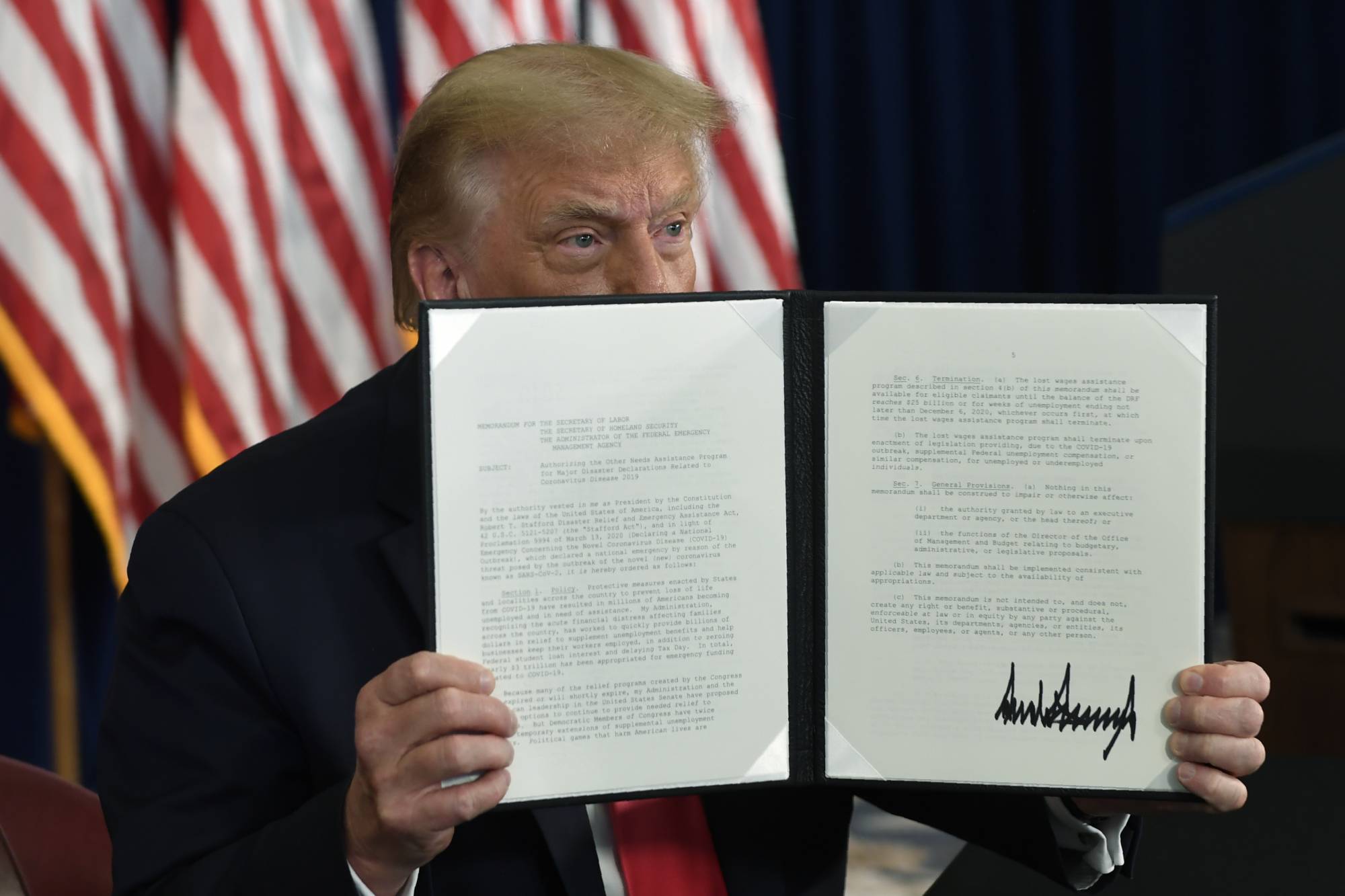White House and Congress both seem to agree lower ranking troops need more money, but how much?
In today's Federal Newscast, the White House says it supports the idea of a “basic needs allowance” for low-income military members, but wants more time to...
To listen to the Federal Newscast on your phone or mobile device, subscribe in PodcastOne or Apple Podcasts. The best listening experience on desktop can be found using Chrome, Firefox or Safari.
- The White House says it supports the idea of a “basic needs allowance” for low-income military members. But the Biden Administration says it would prefer more time to analyze exactly how large those allowances should be. Both houses of Congress have provisions in their defense authorization bills that would add new stipends for low-ranking members with families. The legislation is meant to ensure their annual gross income is at least 30% above the federal poverty line. (Federal News Network)
- Senator James Lankford (R-Okla.) has some concerns about the administration’s handling of medical and religious exceptions to the federal employee vaccine mandate. He says his office is inundated with calls from federal employees and contractors who say they fear retaliation for requesting an exception. Lankford is asking the Office of Management and Budget about the Equal Employment Opportunity Commission’s role in creating the mandate. He says it’s unclear agencies have given employees enough information about how to request an accommodation.
- 94% of employees at the Veterans Health Administration have informed the department about their vaccination status or submitted a medical or religious exception. VA Secretary Denis McDonough says the department is still collecting vaccination data from its employees. He says he’s not aware of any employee who has been fired yet because they’re not vaccinated. Veterans Health Administration employees technically had until Oct. 8 to comply with the vaccine mandate. The rest of the federal workforce must be fully vaccinated by Monday.
- A GOP senator is placing a new hold on key Biden nominees. Sen. Rick Scott (R-Fla.) wants a hearing on what he calls “the growing supply chain crisis.” He says he’ll block the advancement of all nominees for posts at the departments of Transportation and Commerce until he gets one. Scott wants Secretary of Transportation Pete Buttigieg and Secretary of Commerce Gina Raimondo to testify about the administration’s plans to solve supply chain bottlenecks.
- The Bureau of Land Management is still recovering after losing experienced and diverse staff during a recent westward relocation. The Government Accountability Office says 76% of the BLM employees chosen to move to Colorado or 10 other western states declined reassignments or left the bureau before receiving one. Vacancies jumped by 169% between July 2019 and last March. BLM has managed to fill some of those vacancies. But today, the BLM headquarters workforce is still 17% smaller than it was before the relocation. (Federal News Network)
- President Joe Biden wants to keep federal contract workers around longer. He signed an executive order requiring new contractors to offer high performing employees the chance to keep their jobs when the contract changes hands. The executive order will cover more than two million federal service contractors. The White House says the executive order will reduce turnover, prevent disruptions and reduce the expense to recruit, hire and train replacements. (Federal News Network)
- The General Services Administration previewed some major new contracts. Laura Stanton, assistant commissioner for the Office of Information Technology Category, announced that development has begun on the Alliant 3 governmentwide acquisition contract. She also said request for proposals for the Polaris small business GWAC will begin in January. And Sheri Meadema, director of program operations for professional services and human capital at GSA, said development of the new Services Multiple Award Contract will be a top priority in 2022.
- GSA is giving agencies more choices than ever in its contact awards for model year 2022 vehicles. GSA is awarding contracts to eight vendors to provide new zero emission vehicles to the federal government, as well as cars that run on fossil fuels. Agencies purchased more than 47,000 vehicles from GSA in fiscal 2021. GSA spends more than $1.5 billion every year on vehicle purchases and maintaining the federal fleet.
- The Postal Service’s regulator is building out its data expertise to track USPS performance. The Postal Regulatory Commission will soon hire its first chief data officer and create a data governance board in order to track the Postal Service’s delivery performance. Commission Chairman Michael Kubayanda tells the Senate Homeland Security and Governmental Affairs Committee the commision will also to launch a small data analytics group to address bottlenecks and conduct specialized studies on postal costs. Meanwhile, the commission is working on data visualization tools, including a beta-version dashboard tracking USPS performance on its website. (Federal News Network)
- The IRS has new identity verification and signin processes to help people access the agency’s online tools and applications more securely — even on mobile devices. The new verification procedure is used for things like the Child Tax Credit Update Portal, online accounts, getting your Identity Protection PIN — with more applications being added over the next year. Users will have to signin with their ID.me account. Those who already have IRS usernames can use their credentials from the old system to signin until summer 2022.
- The Biden administration has rolled back a Trump era rule that redefined what waterways qualify for federal protection under the Clean Water Act. The Army and Environmental Protection Agency announced the reinstatement of a rule in place before 2015 as the Biden administration prepares its own regulations. The long-planned move restores federal protections for hundreds of thousands waterways. The EPA and Army will accept public comments through late January. (Federal News Network)
- A new phase for the White House’s sprawling cybersecurity executive order. Agencies are entering the “execution” phase of May’s cybersecurity executive order, according to Federal Chief Information Security Officer Chris DeRusha. It’s been six months since President Biden signed the executive order. Agencies now have new guidance on critical software, logging, endpoint detection and other priorities. DeRusha said the rubber is now starting to hit the road. “We’re really shifting into that phase of how do we ensure that agencies are resourced to achieve these ambitious goals? And how do we help them along the way using all of our tools here in the White House?” (Federal News Network)
- An former senior Interior Department employee violated the federal ethics pledge when they communicated one-on-one with a past employer about issues which involved that same employer’s work, during the mandatory 2-year recusal period. An investigation by the Interior Inspector General finds the senior employee did meet with a Departmental Ethics Office attorney several times, but the employee did not get formal, written ethics guidance on specific recusals until spring 2019 — after the ethics violations already occurred. The employee left Interior only months later.
Copyright © 2025 Federal News Network. All rights reserved. This website is not intended for users located within the European Economic Area.
Eric White
Eric White is news anchor and Federal Drive producer at Federal News Network.
Follow @FEDERALNEWSCAST






